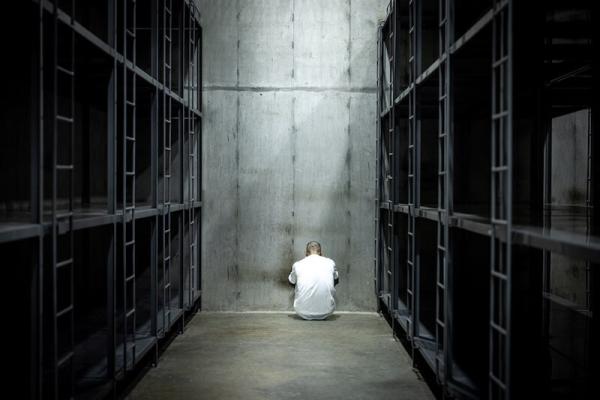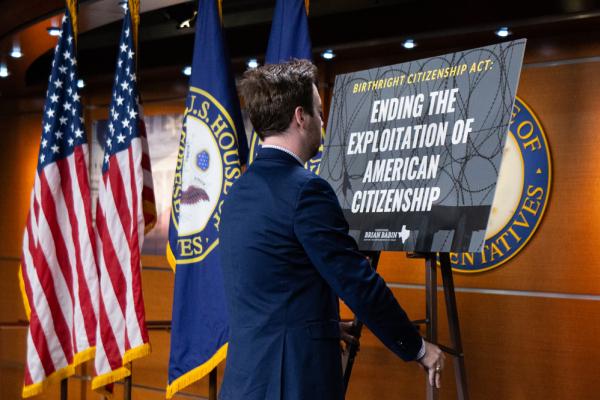A year and a half ago, I and about 1,000 others crowded into the foyer, hallways, and sanctuary of National City Christian Church in Washington, D.C. Despite the press of the people, I felt freed. It was the kind of freedom that only comes from having your truth named and told.
The Reclaiming Jesus gathering in May 2018 was a powerful moment. The resistance it claimed rooted political outcry in the deeper truths of who we are as followers of Christ. For me, it was a cathartic expression of faith in the public square.
Today, the Reclaiming Jesus elders are again calling us to liberation in public witness, but through means other than a rousing church service and candlelit procession to the White House. This time, the journey moves through time (40+ days) rather than space, and the destination is not the presidential residence but something a bit closer to home, if more difficult to reach: our own souls.
The Lent 2020 Call to Prayer, Fasting, and Repentance Leading to Action invites us to engage the turbulent state of our nation by turning inward. We are called to examine ourselves and go to God. Through prayer, fasting, and repentance, Lent offers us the chance to slow down, to tend to our roots, and to re-ground ourselves in God.
While prayer and repentance are broadly understood and embraced as tools for this spiritual work, fasting poses more of a problem. In a world where consumption and self-care go hand-in-hand, fasting goes against the grain.
How can we fast when self-denial and suffering are already so built into our lives with cultures of guilt and shame, structures of oppression, and schedules that barely allow us a moment to breathe? How is fasting a spiritually edifying practice that brings us closer to God – indeed, so close that we are better positioned to address the state of our nation?
In recent years, different ways to re-envision Lent have been suggested, in part out of a sense that fasting is at best ineffective and at worst actively harmful, physically and theologically. Some have encouraged taking something on instead of cutting something out. Others have questioned American Lent’s traditional observance, pointing out its whiteness by deconstructing who is being asked to “give up” and how. This year, one priest put forth a novel suggestion for what to do for Lent: Do nothing.
Over the coming Lenten season, essays published here will explore what contemporary Lenten fasting looks like with a diversity of meanings, perspectives, and experiences. To introduce these new and needed reimaginings of this ancient liturgical season, I offer a reconsideration of the basic Lenten ritual, the spiritual discipline of fasting.
In my experience, the simple act of cutting something out changes things, especially when that “something” is our usual go-to (coffee, chocolate, food), or a coping mechanism (political obsession, cynicism, or avoidance), or an essential part of our routine (scrolling through social media feeds). Fasting interrupts our routine and re-orients us in the world.
Fasting, however, is not just giving something up. Lent is not a second chance at a failed or yet-to-be-started New Year’s resolution, tempting as it may be to engage in this way. To treat it as such shifts the dial from spiritual encounter to exercise in self-improvement attained through one’s own effort – a worthy goal, but markedly different from what fasting offers us.
Fasting, if done right, is an experience of surrender. In decreasing our intake, fasting makes space for something else. In fasting, we are listening for God.
Through fasting, Lent teaches us how to live from a place of generosity, not scarcity.
This seems counterintuitive. We are giving something up, so of course we would be living from scarcity for a time, right? After all, that is the idea – to suffer for a while?
In my experience and theology, the point of Lent is not ultimately to suffer, to diminish and depress us and make us feel like we have less — but instead to help us realize we have more, much more. “One does not live by bread alone,” Jesus said (Matthew 4:4).
Lent moves us to a place of giving, a deeper reality of abundance rather than lack.
This is liberation. In our society today, scarcity mindsets fuel everything from closed and militarized borders to poverty, hunger, climate change, greed, inequality, and impulses toward fear and hate. Breaking free from scarcity is one of the key ways Lent can help us face the world.
At its core, Lent is about righting relationship with God and pursuing the wholeness therein. As righting relationship with God leads to righting relationship with others, Lenten fasting is a critical spiritual discipline for us in 2020 and beyond.
Got something to say about what you're reading? We value your feedback!







